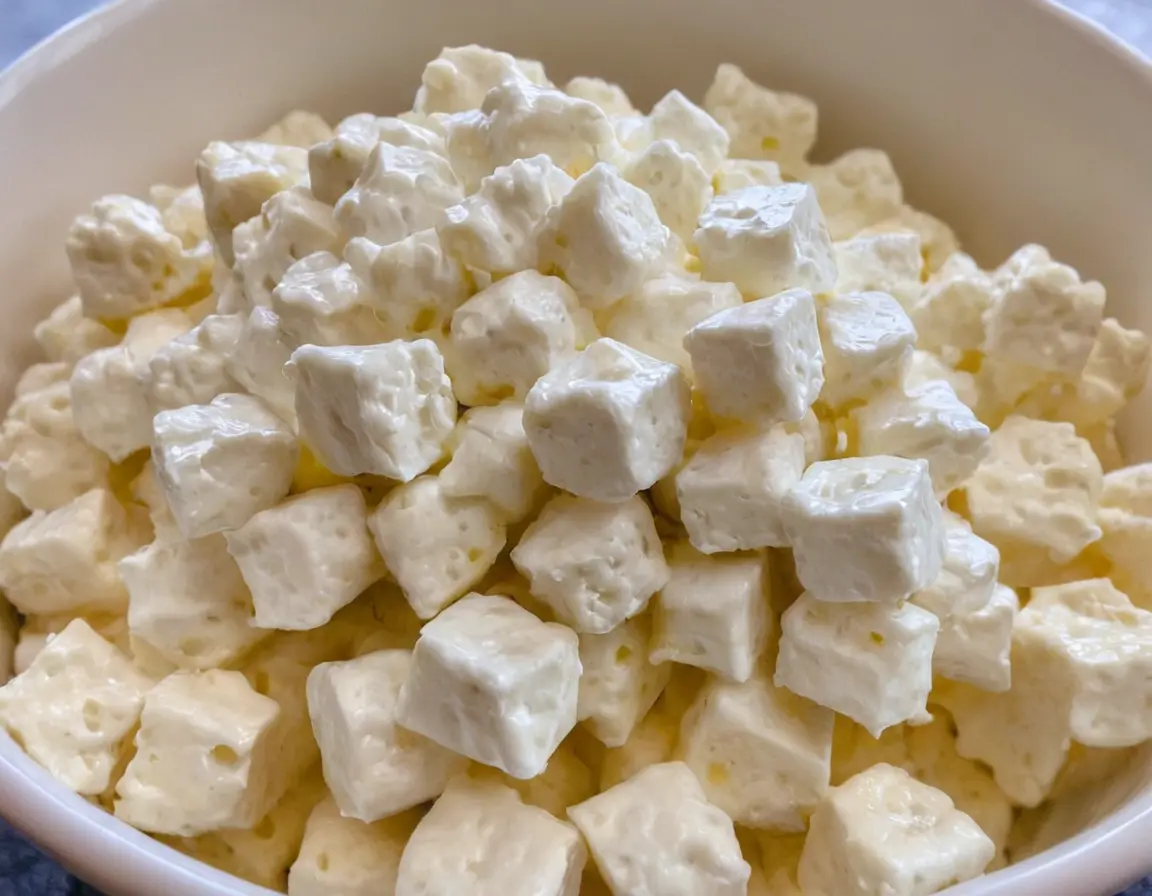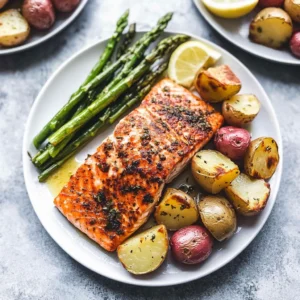Cottage cheese is a nutritious, high-protein dairy product that has gained widespread popularity in recent years. Whether you’re looking to build muscle, lose weight, or simply add more nutrients to your diet, cottage_cheese is a fantastic option. In this comprehensive article, we’ll explore everything you need to know about cottage_cheese, from its origins and nutritional benefits to a variety of delicious recipes you can incorporate into your daily meals.
What is Cottage Cheese?
Cottage_cheese is a fresh, unripened cheese made from the curds of cow’s milk. It has a mild flavor and a creamy texture, making it an excellent ingredient for both sweet and savory dishes. What sets cottage_cheese apart from other types of cheese is that it’s not aged or fermented, which allows it to retain a high moisture content. This gives it a unique, soft consistency that blends well with numerous foods.
A Brief History of Cottage Cheese
The history of cottage_cheese dates back to ancient times. People used to make cottage_cheese by simply adding natural acids to milk, causing it to curdle and separate into curds and whey. Over time, cottage_cheese became a staple food in many households because of its ease of preparation and its nutritional profile. It’s especially popular in the United States and Europe, where it is widely consumed for its health benefits.
Types of Cottage Cheese
There are several types of cottage cheese available on the market, each with varying levels of fat content and curd size:
- Low-Fat : Ideal for those looking to reduce calorie intake while still enjoying a protein-rich snack.
- Full-Fat : Offers a creamier texture and richer taste, perfect for incorporating into recipes.
- Small Curd: Smaller curds create a denser texture, often used in baking or cooking.
- Large Curd: Larger curds are more traditional and are great for eating on their own or with fruit.
No matter which type you choose, cottage_cheese is a versatile addition to a balanced diet.
Nutritional Benefits of Cottage Cheese
Cottage cheese is often considered a superfood due to its impressive nutritional profile. It’s packed with protein, calcium, and essential vitamins that support overall health. Here’s a closer look at the nutritional benefits of cottage_cheese:
- High in Protein: Cottage cheese is an excellent source of protein, with around 12-15 grams of protein per half-cup serving. This makes it a great choice for athletes, bodybuilders, or anyone looking to increase their protein intake.
- Low in Calories: Despite being high in protein, cottage_cheese is relatively low in calories, making it ideal for weight management.
- Rich in Calcium: As a dairy product, cottage_cheese is a fantastic source of calcium, which is vital for bone health and muscle function.
- Contains B Vitamins: Cottage cheese is rich in B vitamins, particularly B12, which plays a crucial role in red blood cell formation and neurological function.
- Source of Probiotics: Some varieties of cottage_cheese contain live cultures or probiotics, which help support a healthy digestive system.
These benefits make cottage_cheese a nutritious option for people of all ages and lifestyles.
Health Benefits of Eating Cottage Cheese Regularly
Weight Management and Satiety
Cottage_cheese is a low-calorie, high-protein food that can help you feel full longer, reducing the urge to snack between meals. This satiety factor is essential for weight management and can contribute to a healthy diet plan. Learn more about the health benefits of cottage cheese to understand its impact on overall health. A study published in the journal Appetite found that high-protein snacks like cottage_cheese can help control appetite and support weight loss efforts.
Muscle Building and Recovery
Protein is essential for muscle building and recovery, making cottage cheese a go-to choice for fitness enthusiasts. It contains casein protein, a slow-digesting protein that provides a steady release of amino acids, promoting muscle repair and growth. Consuming cottage_cheese as a post-workout snack can help accelerate recovery and reduce muscle soreness.
Bone Health
Cottage cheese is rich in calcium, phosphorus, and protein, all of which are vital for maintaining strong bones. Regular consumption of cottage_cheese can help improve bone density and reduce the risk of osteoporosis, especially in older adults.
Heart Health
Low-fat cottage_cheese can be part of a heart-healthy diet when consumed in moderation. It’s low in saturated fat and provides potassium, which helps regulate blood pressure. Including cottage_cheese as part of a balanced diet can support cardiovascular health and reduce the risk of heart disease.
Delicious Cottage Cheese Recipes to Try
Cottage_cheese can be used in a variety of recipes, from breakfast dishes to savory snacks and even desserts. Here are some delicious recipes that highlight the versatility of cottage_cheese:
Cottage Cheese Breakfast Bowl
A cottage cheese breakfast bowl is a quick and nutritious way to start your day. Combine 1 cup of cottage_cheese with a handful of fresh berries (such as strawberries, blueberries, or raspberries), a drizzle of honey, and a sprinkle of granola or chia seeds. This breakfast provides a perfect balance of protein, fiber, and healthy fats to keep you energized throughout the morning.
Cottage Cheese Pancakes
These fluffy pancakes are a healthy twist on a classic breakfast favorite. To make cottage_cheese pancakes, you’ll need:
- 1 cup cottage cheese
- 2 eggs
- 1/2 cup rolled oats
- 1/4 teaspoon vanilla extract
Blend all the ingredients in a blender until smooth. Heat a non-stick skillet over medium heat and pour 1/4 cup of the batter onto the skillet. Cook until bubbles form on the surface, then flip and cook for another 1-2 minutes. Serve with fresh fruit or a dollop of Greek yogurt.
Savory Cottage Cheese Dip
For a savory snack, try making a cottage cheese dip. Blend 1 cup of cottage_cheese with 1/4 cup chopped chives, 1 minced garlic clove, and a pinch of salt and pepper. Serve with sliced vegetables or whole-grain crackers for a delicious and healthy appetizer.
Cottage Cheese Stuffed Peppers
This recipe is a great way to incorporate more vegetables into your diet. To make cottage cheese stuffed peppers, follow these steps:
- Preheat your oven to 375°F (190°C).
- Cut the tops off 4 bell peppers and remove the seeds.
- In a bowl, mix 1 cup of cottage_cheese, 1 cup of cooked quinoa, 1/2 cup of diced tomatoes, and 1/4 cup of shredded mozzarella cheese.
- Stuff the peppers with the mixture and place them in a baking dish.
- Bake for 25-30 minutes, or until the peppers are tender and the cheese is melted.
This dish is perfect for a light dinner or a meal prep option for the week.
Cottage Cheese Smoothie
For a protein-packed smoothie, blend 1/2 cup of cottage_cheese with 1/2 cup of frozen mango, 1/2 cup of frozen pineapple, 1/2 banana, and 1/2 cup of almond milk. This creamy smoothie is a great way to refuel after a workout or enjoy as a refreshing snack.
Cottage Cheese vs. Other Cheeses: A Nutritional Comparison
When it comes to choosing the right cheese for your diet, it’s essential to consider the nutritional differences. Here’s a quick comparison of cottage_cheese versus other popular types of cheese:
- Cottage Cheese vs. Ricotta: Cottage cheese is lower in fat and calories than ricotta, making it a better choice for weight loss and heart health. Ricotta, on the other hand, has a creamier texture and slightly sweeter flavor, making it ideal for desserts.
- Cottage Cheese vs. Cream Cheese: Cream cheese is much higher in fat and calories compared to cottage_cheese. Cottage_cheese is a healthier alternative that still provides a creamy texture without the added fat.
- Cottage Cheese vs. Cheddar: Cheddar is a high-fat, aged cheese, whereas cottage_cheese is fresh and low in fat. Cottage_cheese is a better option for those looking to reduce their saturated fat intake while still enjoying a cheesy flavor.
Choosing cottage_cheese over higher-fat cheeses can be beneficial for weight management and overall health.
Frequently Asked Questions About Cottage Cheese
Can Cottage_Cheese Be Frozen?
Yes, cottage_cheese can be frozen, but it may alter the texture. Frozen cottage_cheese is best used in recipes like casseroles or smoothies rather than eaten on its own.
How Long Does Cottage Cheese Last?
Unopened cottage_cheese can last up to 1-2 weeks in the refrigerator. Once opened, it should be consumed within 5-7 days for optimal freshness.
Is Cottage Cheese Suitable for People with Lactose Intolerance?
While cottage_cheese contains less lactose than milk, it still contains some lactose. Those with mild lactose intolerance may be able to tolerate small amounts, but it’s best to opt for lactose-free varieties if you have a sensitivity.
Can I Eat Cottage_Cheese Every Day?
Yes, you can eat cottage_cheese every day as part of a balanced diet. It’s an excellent source of protein and other nutrients that support overall health.
Incorporating Cottage Cheese into a Healthy Diet
Cottage_cheese is a versatile ingredient that can fit into various dietary patterns, including low-carb, high-protein, and vegetarian diets. It pairs well with fruits, vegetables, grains, and even lean meats, making it an easy addition to almost any meal. For those seeking inspiration on how to incorporate cottage_cheese into their daily meals, be sure to check out our 10 Delicious Cottage Cheese Recipes for a Protein-Packed Day for more creative ideas.
Final Thoughts on Cottage Cheese
Cottage_cheese is more than just a health food trend—it’s a nutrient-rich, delicious, and versatile option that deserves a place in your diet. Whether you’re enjoying it in a savory dip, a sweet breakfast bowl, or as a creamy addition to baked goods, cottage_cheese offers numerous health benefits that can support a healthy lifestyle. So go ahead, get creative in the kitchen, and enjoy the many ways you can incorporate cottage_cheese into your meals!
For more inspiration on incorporating cottage_cheese into your recipes, make sure to read our article on 10 Delicious Cottage Cheese Recipes for a Protein-Packed Day.



